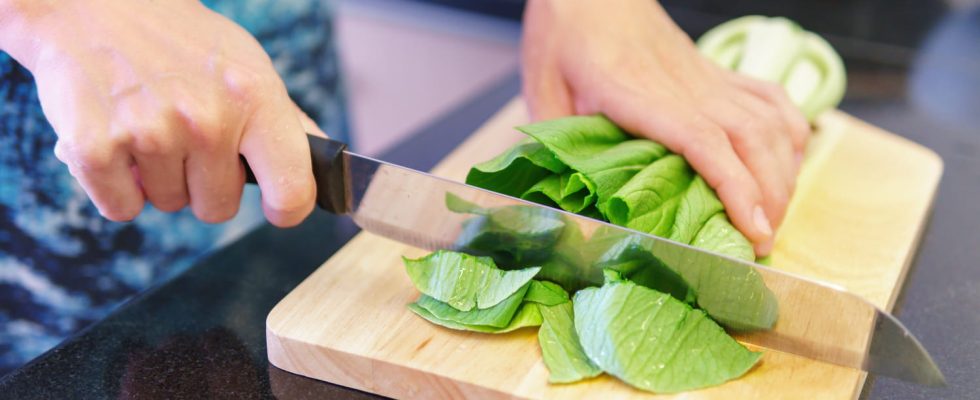In less than 2 months, it would lower the level of “bad cholesterol”, researchers report.
A healthy and balanced diet, particularly rich in fruits and vegetables, helps maintain good cardiovascular health. But not all vegetables are equal. So-called “cruciferous” vegetables such as broccoli or cabbage seem to have a superior cardioprotective action that is beneficial for the arteries. One of them, little consumed in France, would be particularly good for reducing cholesterol, one of the main cardiovascular risk factors, suggest Chinese researchers in a study published in the scientific journal Food & Function.
This vegetable is easily found in supermarkets, in greengrocers, in markets and in Asian grocery stores. It is very appreciated for its pronounced, slightly spicy taste and its crunchy texture. Star of Asian cuisine, it is cultivated as a vegetable plant whose stems and leaves are eaten. This famous vegetable is none other than Chinese cabbage or pak choi, a herbaceous plant which resembles – for the uninitiated – a romaine lettuce or a chard with its long, curly green leaves. To demonstrate the cardioprotective effect of this vegetable, the researchers conducted an experiment on 56 hamsters. These animals were randomly distributed into several groups, each with a specific diet followed for 56 days: normal diet (A), high-fat diet (B), high-fat diet + the equivalent of 5% of their food bolus in Chinese cabbage (C), high-fat diet + 7% Chinese cabbage (D). On days 0, 28 and 56, blood and liver samples were collected to examine the lipid profile as well as several parameters such as liver enzymes of the hamsters. The results showed that:
► Group B (who ate fatty foods and no Chinese cabbage) had significantly higher levels of total cholesterol and triglycerides compared to group A.
► Group D – those who ate the most Chinese cabbage – had significantly reduced levels of total cholesterol, triglycerides and “bad cholesterol” (LDL cholesterol) and higher levels of “good cholesterol” (HDL cholesterol) compared to group B.
► No significant effect, neither on “good cholesterol” nor on “bad cholesterol” for group C – the one who ate a little Chinese cabbage every day.
Hamsters supplemented with 7% Chinese cabbage showed the best performance among all other high-fat groups, showing that sufficient consumption of Chinese cabbage could be an excellent alternative to reduce cholesterol accumulation in the body. and preserve health. Probably because of its high content of fiber and antioxidants (polyphenols) which help fight against the oxidation of bad cholesterol. These results must of course be confirmed on a larger scale and adapted to humans.
